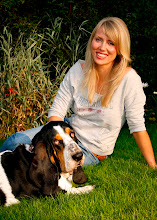Rabbits and rodents are great family pets and can be easy to care for but, they are completely dependent on their owner to keep them safe, clean, healthy and happy. We’ve got some handy hints to help you give the best possible care for your pet.
For Rabbits
- Food – it’s important to include a variety of foods in your rabbit’s diet to keep him happy and healthy. There are many foods you can give your bunny for variety, including; corncobs without the kernels, dandelion flowers and greens (no pesticides), sunflowers, carrots and carrot tops.
- Teeth - rabbit’s, along with all rodents teeth, grow throughout their lives so ensure you give you pet lots to gnaw on to keep teeth filed. Buy mineral or gnawing blocks or fruit wood such as apple wood is just as good. Hay is extremely important in keeping teeth down; make sure you give your rabbit enough hay to graze on for the whole day. If your rabbit develops ‘cloudy’ eyes this can suggest a problem with its teeth.
- Rear end - check daily for any dirtiness on the fur. It is especially important to check twice daily for any soiling in the summer, as this can attract flies to your pet’s bottom, where they can lay their eggs, hatching into maggots within a matter of hours. This is called ‘fly-strike’ and is usually fatal if not treated immediately. Make sure you thoroughly clean the area but if the rear end of your rabbit becomes soiled frequently speak to your vet. Dirt can suggest a diet is too rich.
- Claws - if your rabbit is kept on soft ground it’ll be more difficult for it to wear its claws down. Regularly check your bunny’s paws, and if they are too long they will need regular clipping.
For Gerbils - Food - gerbils love sunflower seeds and peanuts but these are very high in fat so limit the amount they get per feed!
- Behaviour – in the wild gerbils would live in complex tunnels and burrows. It’s very important to allow your gerbil the opportunity to burrow in its enclosure. Create a deep layer using shavings and hay. Gerbils rarely vocalise, the only time they do is at times of stress, play or excitement.
For Guinea Pigs - Food - guinea pigs lack the enzyme that makes Vitamin C, which may result in a Vitamin C deficiency, causing weight loss, general weakness and swollen joints. Fresh vegetables given daily can help prevent this and put a small dose of sugar free Ribena into your pet’s water!
- Behaviour - guinea pigs are prey animals so being picked up from above can mimic the movements of predators in the wild. To handle a guinea pig appropriately, lower yourself and scoop your pet up from its behind with one hand securing it at the front. Creating lots of tunnels in the enclosure will give your pet lots of places to hide in, helping him to feel secure.

